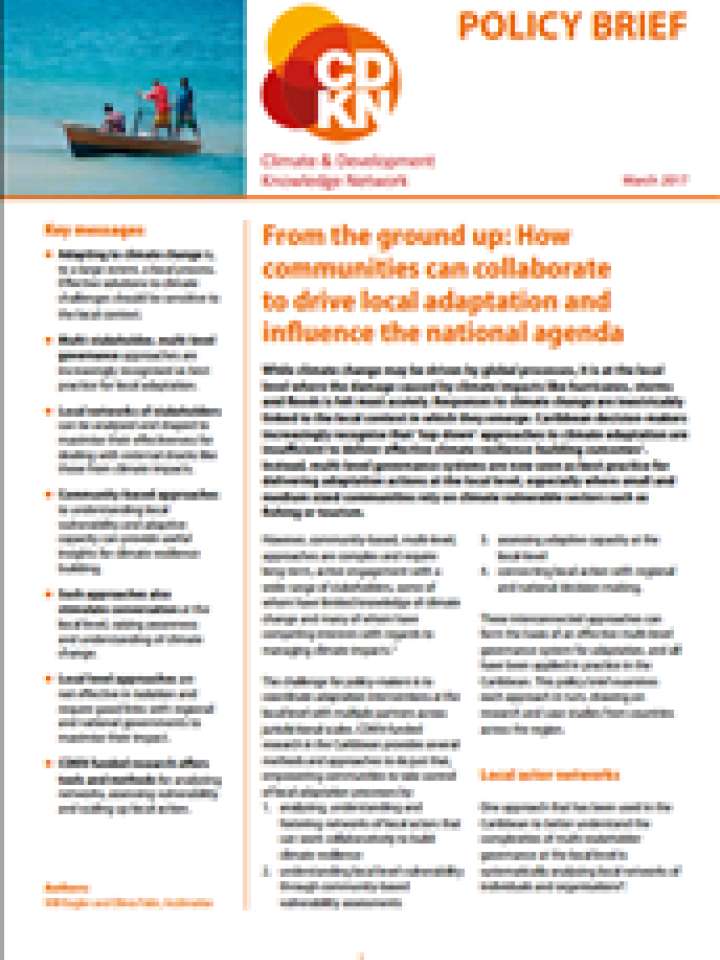From the ground up: how communities can collaborate to drive local adaptation and influence the national agenda
This policy brief introduces and examines several methods and approaches to coordinate adaptation interventions at the local level with multiple partners across jurisdictional scales. The methods aim to empower communities to take control of local adaptation processes. The brief discusses the approaches in turn, drawing on research and case studies from countries across the region.
Key messages:
- Adapting to climate change is, to a large extent, a local process. Effective solutions to climate challenges should be sensitive to the local context.
- Multi-stakeholder, multi-level governance approaches are increasingly recognised as best practice for local adaptation.
- Local networks of stakeholders can be analysed and shaped to maximise their effectiveness for dealing with external shocks like those from climate impacts.
- Community-based approaches to understanding local vulnerability and adaptive capacity can provide useful insights for climate resilience building.
- Such approaches also stimulate conversation at the local level, raising awareness and understanding of climate change.
- Local level approaches are not effective in isolation and require good links with regional and national governments to maximise their impact.
- CDKN funded research offers tools and methods for analysing networks, assessing vulnerability and scaling up local action.
Explore further
